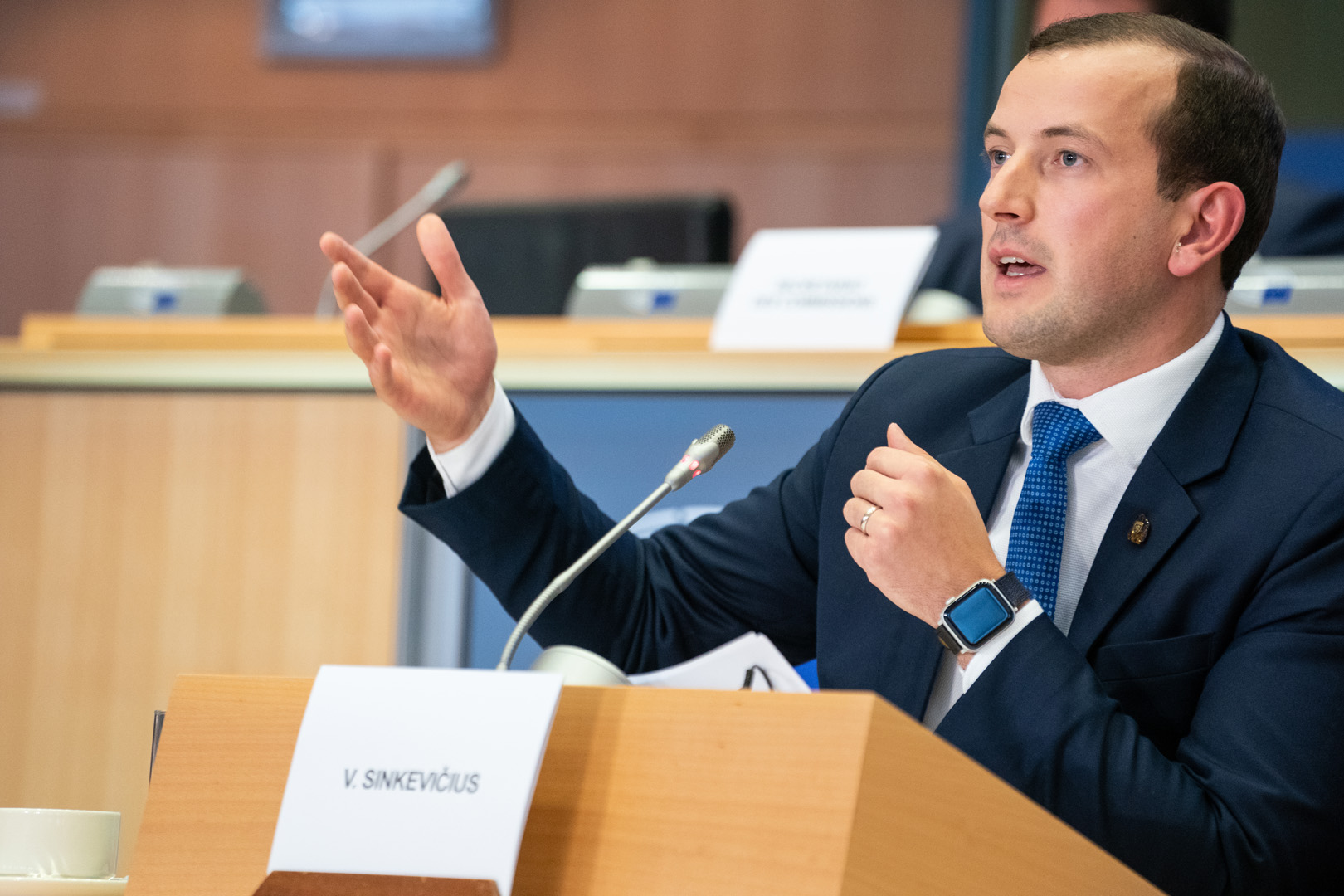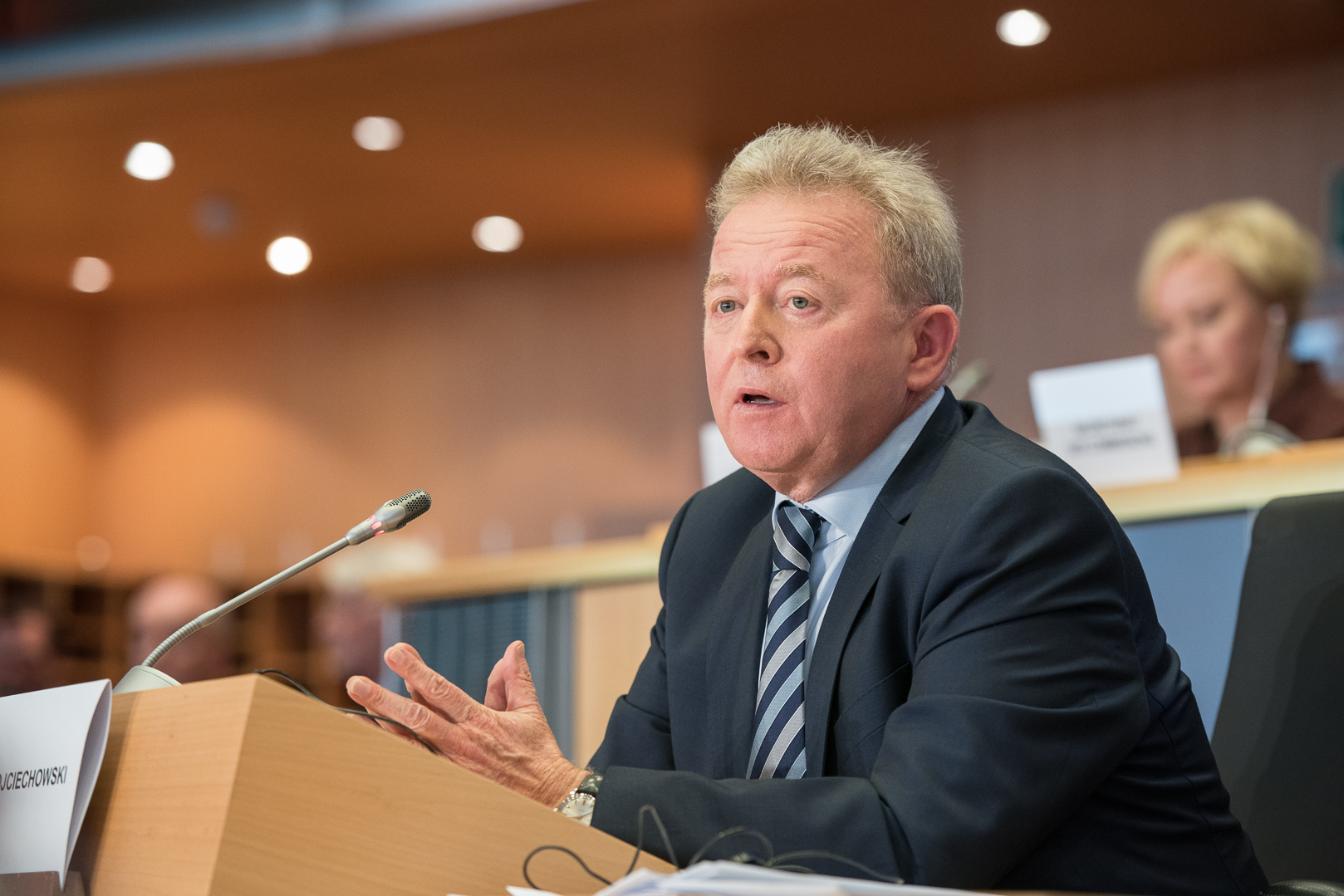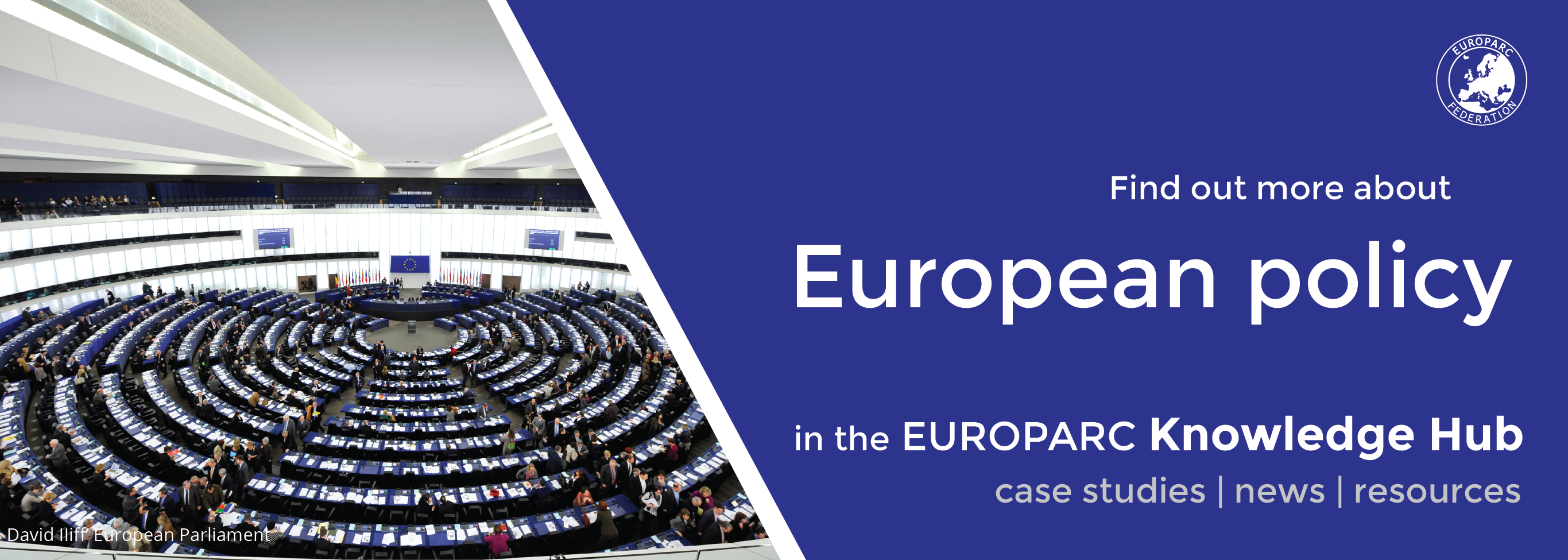Towards a new European Commission with a strong Environmental approach
During the first weeks of October, the Commissioners-designates appointed by Ursula Von der Leyen were heard by the Members of the European Parliament (MEPs) to decide on the suitability of these candidates for the respective proposed positions. The round of public hearings is over and soon, the European Parliament will vote on the full College of Commissioners.
Towards a new European Commission
After the election of Ursula von der Leyen as the new President of the European Commission (elected by the European Parliament on the past 16th of July 2019), the German politician became the first woman leading the EU Commission.
How will the ambitions of von der Leyen’s Presidency for the next five years fit with the interests of European Protected Areas?
On the principle of ‘‘doing it the European way’’, the President has already launched her first statements and headline desires:
A European Green Deal, an economy that works for people, a Europe fit for the digital age, protecting our European way of life, a stronger Europe in the world and a new push for European democracy.
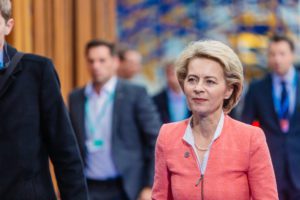
EU Commission President, Ursula von der Leyen by Arno Mikkor
What is interesting about these objectives is the close relationship with an ambitious climate agenda and the wish to make Europe the first climate-neutral continent by 2050.
Ursula also underlined the importance of strengthening European democracy and creating a fair social market, with an emphasis on people and regions, which she aims to leverage through a “Just Transition Fund” to support local communities in coal-heavy regions across Europe away from fossil fuels, and through a “Stability and Growth Path“.
Climate change is definitely a priority for Protected Areas:
it will be important to see if and how the new Commission will include in the climate agenda not only the energy and coal and fossil fuel dependency but also the impact and mitigation measures connected with nature conservation. EUROPARC is actively working on supporting parks in mitigation and adaptation measures, and later this month, we will have a (free) webinar exclusively dedicated to it.
A strong commitment to the Environment
Looking at the environmental challenges the world is facing, von der Leyens’ approach seems ambitious and responsible, as she puts at the top of European priorities the target to reduce by 50% (or even 55%) CO2 emissions by 2030, through the creation of a Green Deal for Europe and the first European Climate Law.
Other important measures will be the creation of a Sustainable Europe Investment Plan and a Climate Bank, a raised effort to meet the Sustainable Development Goals (SDGs), an updated Circular Economy Action Plan with special attention given to single-use plastics. In addition, the carbon emissions policy will be strengthened and include a new Carbon Border Tax, as she considers that ‘‘all of us and every sector will have to contribute to reducing emissions. Emissions must have a price that changes our behaviour’’.
Ursula’s Commission will also present a new Biodiversity Strategy for 2030 and launch the Farm to Fork Strategy in order to support European farmers towards a more sustainable food chain production.
Not long ago, even the word “biodiversity” was considered too technical to be used in the dialogue with public and with decision-makers.
Today biodiversity has become a priority for the Commission at the highest level. European Protected Areas can be nothing but happy to see this big change from the past.
Although the Commissioners’ designation is not yet definitive, these are the names you should know (and the Public hearings you shouldn’t’ miss!):
- Frans Timmermans is proposed as Executive Vice-President responsible for the EU Green Deal
- Virginijus Sinkevičius is proposed as Commissioner for Environment and Oceans
- Janusz Wojciechowski is proposed as Commissioner for Agriculture
Virginijus Sinkevičius (Environment & Oceans, Lithuania)
Despite his background in economics, the Lithuanian Virginijus Sinkevičius will have the mission of conserving Europe’s natural environment and work for a prosperous and sustainable fishing, with a thriving blue economy. Virginijus will be the youngest Commissioner-designate in the history of the EU, and for the first time, ‘Oceans’ will be included under the environment portfolio (before no mention was given to Oceans, simply to “maritime affairs”). Sinkevičius’ most important priorities include:
- A new Biodiversity Strategy for 2030
- the 2020 Conference of the Parties to the Convention on Biological Diversity
- a Zero-pollution ambition
- a Circular Economy Action Plan
- a Microplastics Action Plan
- the implementation of the reformed Common Fisheries Policy
- ‘Farm to Fork’ strategy on sustainable food
- an international ocean governance
- and a new approach for a sustainable blue economy
Sinkevičius got the green light from MEPs after presenting himself well prepared for the role during his public hearing. “For us, the ambitions for 2050 are not just a target on a piece of paper, we have to live it” affirmed the young Commissioner-designate when talking about the climate neutrality objective settled by Von der Leyen in her mission letter. At the end of his speech, Virginijus promised that his mandate will be the greenest Europe has ever seen, triggering strong applause from a large part of the hemicycle.
This mandate will be the greenest that Europe has ever seen (Virginijus Sinkevičius)
Several aspects of the Mr Sinkevičius’s mandate will be important for Protected Areas
As already mentioned, the biodiversity strategy will be the most important one. EUROPARC is already in dialogue with the European institutions for years: we really would like to see the role of national and regional protected areas in the implementation and achievement of the EU policies. And recognised at high-level, in a stable and strong way: all parks, indeed, reinforce the Natura 2000 network, which, alone, cannot attain the conservation of the European habitats and species. Read our policy paper on European Protected Areas and Sustainable Agriculture.
The Farm to Fork strategy jointly entrusted to the Commissioner of Environment and to the Commissioner of Agriculture, and coordinated by the Commissioner for the Green Deal, will imply a new consideration of the connection between farming, nature conservation, health and environment, as always claimed by the European parks.
Last but not least, the importance given to oceans governance and to the blue economy let hope for renewed and reinforced political attention toward Europe´s marine protected areas.
Frans Timmermans (Executive Vice-President for the European Green Deal, Netherlands)
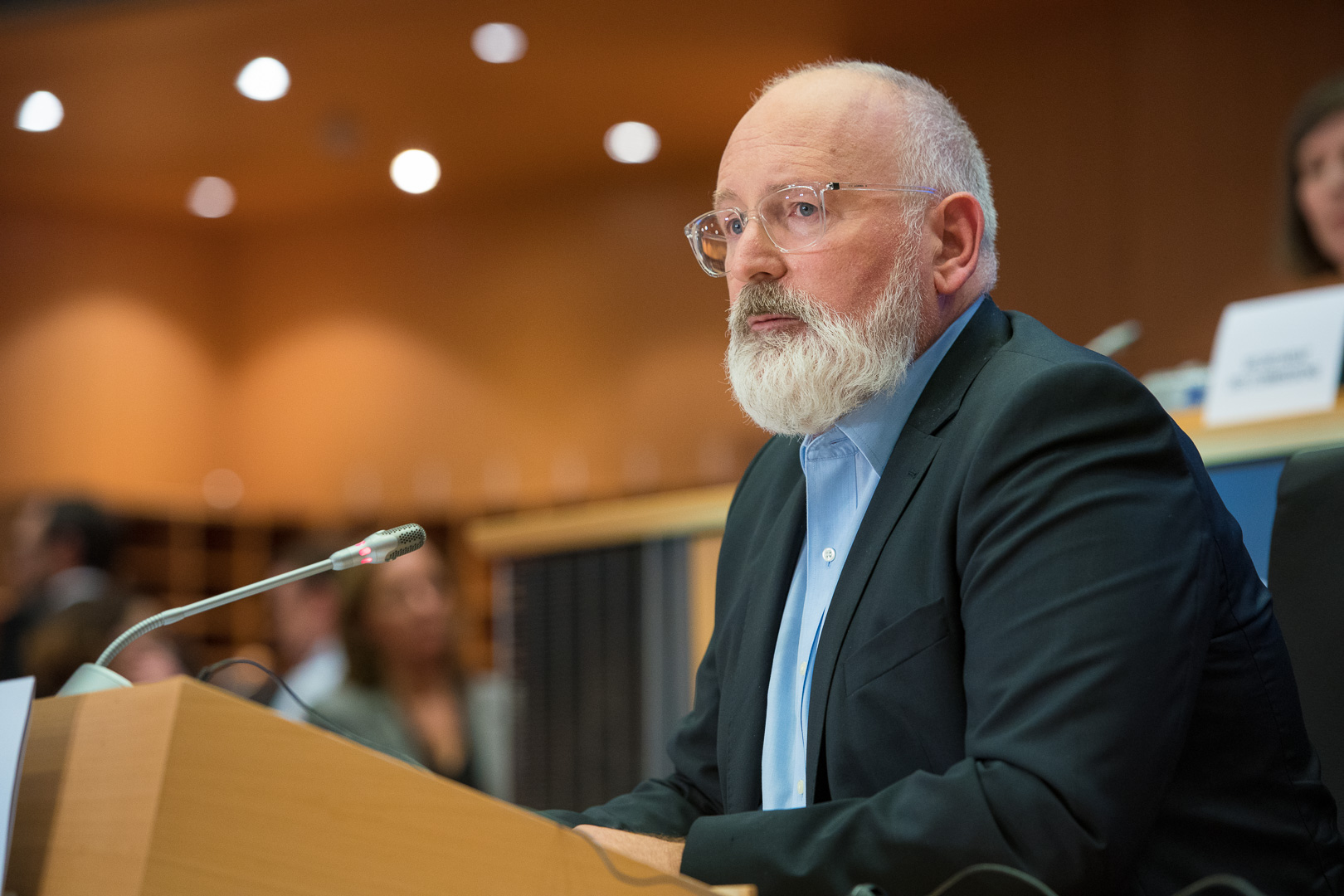
Hearing of Frans Timmermans (the Netherlands) – Executive Vice President-Designate – European Green Deal (News, European Parliament)
Timmermans will be in charge of the European Green Deal and Climate Action (with the European Climate Law and European Climate Pact), which should be defined within his first 100 days in office. The Dutch Social Democrat will be Climate Chief and for that, he will take some important measures as reducing emissions by 2030 financed by the new “Just Transition Fund”.
He also promised to control transport emissions stating “I don’t want a car-free Europe. I want emission-free cars in Europe”. In regards to the energy transition, Timmermans added “it’s absolutely clear there’s no future in coal”, a strong statement that won the approval of the MEPs and made him being considered as one of the best candidates for leading the new Commission. As a skilled politician, he underlined the importance of international cooperation in fighting climate change and the role of the Europen Union in setting up new environmental standards for the world.
In leading the work on the European Green Deal, Timmermans will ensure that climate, energy, environment are fully taken into account in all political dimensions. Therefore, his role will be to guarantee coherence between the EU policies. In particular, looking at the Protected Areas perspective, it is important to underline
the declared ambition of this Commission that Europe must lead the world when it comes to protecting our biodiversity.
Timmermans will ensure the Commission mainstreams biodiversity priorities across all policy areas, notably trade, industry, agriculture, and maritime affairs. To do this, Timmermans will coordinate also the work on the Biodiversity Strategy for 2030.
Janusz Wojciechowski (Agriculture, Poland)
The previous Polish MEP Janusz Wojciechowski committed to achieving a modern and sustainable European agriculture. Despite his failure at the first hearing – as his answers did not convince the MEPs in the first round – he did get approval in the second round, when he opted to speak in Polish, his native language, to better express his intentions.
Wojciechowski has a large experience in agriculture (he was a member of the AGRI Committee in the past European Parliament) and underlined that special attention will be given to small farmers. He will be in charge of some important decisions like the new Common Agricultural Policy (CAP) for 2020, which will cover topics such as animal welfare, food quality and competitiveness, and will have a very close relation with climate change, landscapes, and biodiversity.
Together with the Commissioner of Environment, he will be in charge to develop the ‘Farm to Fork’ strategy for sustainable food, looking at how the agri-food sector can improve the sustainability of food production across the food chain, including through organic production.
Janusz will be also in charge to develop a new long-term vision for rural areas.
This last point is probably one of the most important for Protected Areas perspective: it will be necessary that the role of Protected Areas in the rural development will be recognised by the EU institutions and also by the Member States in the elaboration of the National Strategic Plans under the new Common Agricultural Policy.
